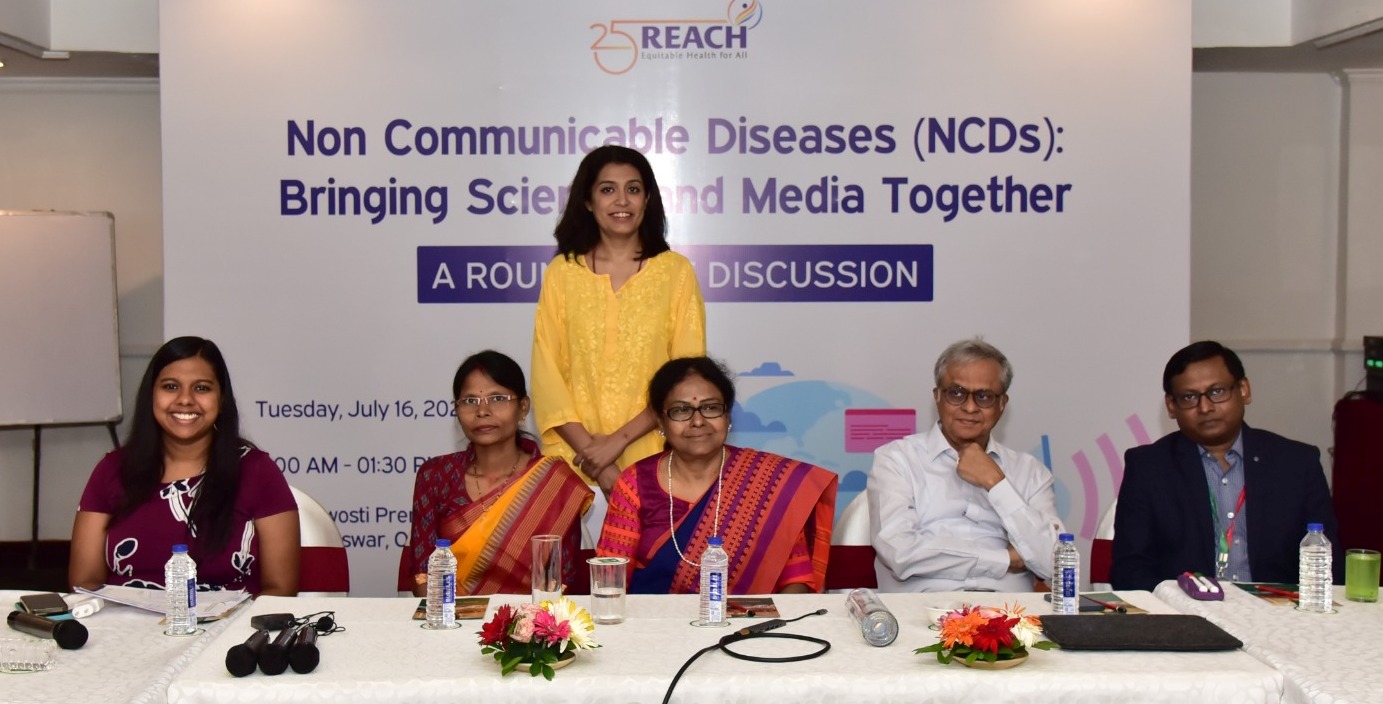Bhubaneswar, July 16, 2024 (TBB Bureau): REACH (Resource Group for Education and Advocacy for Community Health) convened a pivotal media roundtable titled “Non-Communicable Diseases (NCDs): Bringing Science and Media Together” on Tuesday, gathering prominent stakeholders to confront the escalating challenge of NCDs and advocate for effective solutions. The event, held in the capital city of Odisha, aimed to elevate awareness and foster collaboration among healthcare leaders, policymakers, and media influencers.
 Mayank Mohanti, Senior Media and Communications Associate at REACH, set the tone with an introductory address underscoring the nonprofit’s commitment to amplifying grassroots health reporting across India. Emphasizing the critical role of media in driving policy reform and resource allocation, Mohanti remarked, “Journalists equipped with comprehensive knowledge can illuminate the realities of NCDs, empowering communities towards informed health decisions.”
Mayank Mohanti, Senior Media and Communications Associate at REACH, set the tone with an introductory address underscoring the nonprofit’s commitment to amplifying grassroots health reporting across India. Emphasizing the critical role of media in driving policy reform and resource allocation, Mohanti remarked, “Journalists equipped with comprehensive knowledge can illuminate the realities of NCDs, empowering communities towards informed health decisions.”
The inaugural session, “Understanding NCDs in India,” featured insights from Dr. B Ravindran, Professor Emeritus and former Director of the Institute of Life Sciences, Bhubaneswar. Dr. Ravindran highlighted the pervasive impact of NCDs and advocated for holistic strategies to mitigate their prevalence through lifestyle interventions and early detection.
Distinguished panelists Dr. Sweekruti Jena, senior endocrinologist at Kalinga Hospital, and Dr. Nirmalya Deo Pradhan, senior pediatric oncologist at Sri Shankara Cancer Centre, engaged in a dynamic discussion on current trends and advancements in NCD management. They stressed the imperative of collaborative efforts and technological integration to enhance patient outcomes and community health.
Dr. Ambarish Dutta, a renowned public health expert from the Indian Institute of Public Health, led the session on “Reporting Realities in Healthcare,” emphasizing the socio-economic dimensions of NCDs and advocating for culturally sensitive communication strategies to foster community engagement and proactive health measures.
The event culminated in a compelling narrative shared by Subhashree Dash, a resilient advocate who has navigated life with NCDs, underscoring the importance of support systems and patient empowerment in managing chronic conditions.
In the concluding session, “Communicating Effectively: Messaging for NCDs,” independent journalist Nibedita Pattanayak elucidated on the pivotal role of media in shaping public discourse and policy agendas related to NCDs. Pattanayak underscored the necessity for comprehensive, data-driven reporting that resonates with diverse audiences and drives societal awareness and action.
 The Business Bytes
The Business Bytes